In every home, there are several unsung heroes that contribute to daily comfort. The heater is on top of this list. As one of the hardest-working systems, it silently goes about its job, ensuring you have a warm shower to kick start your day, clean dishes and do laundry. Its value, though often understated, becomes painfully evident when it malfunctions. Can you imagine stepping into an icy cold shower on a chilly morning or finding your basement flooded due to a ruptured water tank?
Suddenly, the appliance most homeowners took for granted becomes a prized commodity, emphasizing its necessity. If you’re currently facing one of the Bradford White water heater problems, a renowned brand in this industry, such as a leaking unit or a pilot light that doesn’t turn on, it’s crucial to take timely action.
A Brief History Of Water Heaters
Before probing deeper into the mechanics and common issues related to water heaters, it’s fascinating to understand the evolution of this crucial appliance. The journey of water heaters started in the mid-19th century with the invention of the ‘Geyser’, a stove that heated water as it flowed into a bath.
Over the years, innovations led to the creation of more efficient models that could supply heated water on demand. By the 20th century, the idea of a centrally located water heating system took hold, giving birth to the storage tank model. This model maintained a ready supply of heated water, a luxury that transformed daily living. The next significant evolution came with the introduction of the tankless heater, a compact and energy-efficient model that heated water as needed. The journey from basic stoves to the modern sophisticated heating appliances of today is a testament to human ingenuity and the pursuit of comfort.
Now that we’ve explored the history of heaters, let’s look at how they work in our homes today.
Understanding Your Water Heater
To grasp common complications and perform effective troubleshooting, it’s beneficial to first familiarize oneself with how water heaters operate. They essentially function using two primary methods and two main energy sources.
The two main types of water heaters are the storage tank model and the tankless model. Storage tank models maintain a large quantity of heated water, ready for use as required. On the other hand, tankless heaters, also known as on-demand models, heat the water only when it’s needed. This on-demand operation can lead to significant energy savings over time.
Regarding energy sources, water heaters can be either electric or gas-powered. Electric heaters utilize heating elements to warm the water, with the voltage requirement varying based on the model. In contrast, gas heaters burn natural gas to produce heat and typically feature a vent pipe at the top to expel exhaust gases. While the operational cost can vary, gas heaters generally heat water faster and can operate even during power outages.
Equipped with this understanding of the fundamental workings of your water heater, you’ll be better prepared to troubleshoot potential issues and communicate more effectively with experts if necessary.
Armed with this awareness, let’s explore the common issues you may encounter with your water heater and how to solve them.
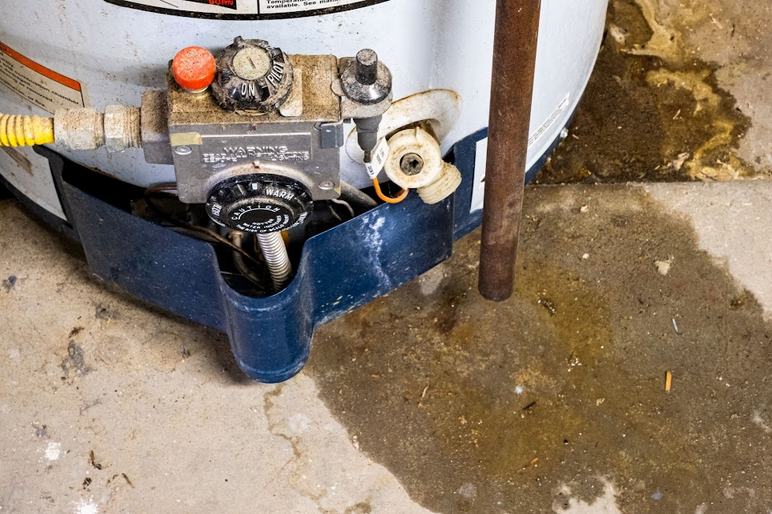
Common Water Heater Problems And Their Solutions
Heating units, like any other appliance, can face various issues affecting operation. Being able to identify and rectify these complications can help prevent the discomfort of unexpected cold showers and unnecessary repair expenses.
-
Not Enough Hot Water
Running out of hot water mid-shower can be very frustrating. If your water supply seems to deplete faster than expected, two factors could be at play. It might be due to your model’s capacity not being sufficient for your household’s needs. Alternatively, your thermostat could be set too low.
For instance, a growing family or increased hot water usage might have outgrown your heating unit’s original capacity. Similarly, a lower thermostat setting could prevent the water from heating to the desired level.
Try adjusting the thermostat first. If the issue persists, consider upgrading your heating appliance to match your household’s water requirements better.
-
It Takes Too Long For The Water To Reheat
If your water takes too long to heat, this could be due to a faulty heating element or malfunctioning dip tube, which directs cold water to the tank’s bottom. Checking and replacing these components can restore the system’s performance.
-
Foul-Smelling Or Discolored Water
There’s nothing quite as off-putting as a hot shower tainted with the smell of rotten eggs, or the sight of water tinged with rust or a brownish hue when you’re yearning for a refreshing drink. These water quality issues can be quite alarming, and they often originate within your water heater.
Let’s imagine a scenario: You return from a long, exhausting run on a hot summer day. All you yearn for is a refreshing shower and a tall glass of water. However, as you fill your glass from the kitchen faucet, you notice a disturbing brownish hue in the water. You’re perplexed and a bit alarmed. Meanwhile, your shower has a noticeable odor that’s far from refreshing. You run the tap a bit longer, hoping it’s a temporary issue, but the water remains discolored, and the smell persists.
The source of these issues often involves the anode rod in your heater tank. This rod plays a crucial role in preventing tank corrosion, which could lead to water discoloration. However, when the bacteria in the water interact with the anode rod, it can produce hydrogen sulfide gas, known for its off-putting scent that’s often compared to rotten eggs.
Regular inspection and replacement of the anode rod, as well as flushing the tank, can often resolve these issues and maintain the quality of your water. If the problems persist after these steps, it might be time to consider replacing the tank or old iron pipes.
-
Leaking Water Heater
Pools of water near your heating system warrant immediate attention. These leaks could stem from a malfunctioning valve or a compromised tank.
For example, an in-line valve found at the top of the tank may cause a leak if it’s not functioning properly. You might be able to rectify this by simply tightening the nut that holds the valve in place. However, if leaks persist after this, the valve may need to be replaced.
If the source of the leak is the tank, it indicates a more serious issue such as small ruptures or cracks from corrosion, high pressure, old age, or improper installation, necessitating a tank replacement. Given the complexity of this task, it’s generally advisable to engage a professional to ensure a safe and correct installation.
-
Residue Accumulation
The buildup of residue in your heating unit can result in various issues affecting its performance. Recognizing how residue impacts your heating appliance can help address these difficulties effectively.
The first sign of excessive buildup might be erratic water temperatures. You might encounter a chilling blast during your morning shower or, on the other hand, be exposed to scalding water. Such inconsistency often signals a faulty thermostat or obstruction of the heating element.
How does sediment contribute to this problem? Sediment can act as an insulating layer, causing the heater to work harder and potentially overheat the water. In contrast, a failing thermostat might not accurately regulate the temperature, leading to inconsistent water temperatures. You can attempt to fix this issue by resetting the thermostat or draining the tank to clear out the deposits. If the temperature remains inconsistent, consider consulting an expert for a comprehensive diagnosis and solution.
Another mess linked to excessive buildup is noise. If your device begins to rumble or emits high-pitched sounds, it’s often a sign of sediment accumulation. This buildup is usually found inside the tank or in the form of scale on the heating elements.
Cleaning or replacing these components can help reduce the noise and optimize the heater’s performance. Regular tank draining to remove potential buildup is a good practice to adopt. If the rumbling or high-pitched noises persist, it might be beneficial to seek expert help.
-
Circuit Breaker Issues
If your system’s circuit breaker frequently trips, it might be improperly wired to the electrical panel. This issue involves rewiring the heating system and should, therefore, be addressed by a certified electrician.
Please note that these are general solutions and may not apply to all water heater models and brands. Always refer to your specific model’s user manual or consult with a professional when in doubt. Next, let’s look at how we can prevent these troubles.
Preventing Water Heater Problems
Just like any other appliance, prevention is key in maintaining the functionality of your appliance. Regular maintenance can extend your unit’s lifespan and avoid troubles. Here are some upkeep practices to keep in mind:
- Yearly Tank Flushing: This procedure helps remove residue build-up, improving efficiency and preventing issues like inconsistent temperatures.
- Pressure Relief Valve Checking: Regularly inspecting this valve ensures it’s functioning correctly, which is vital for leak prevention.
- Anode Rod Inspection: The anode rod, which protects the tank from rusting, should be consistently inspected. Frequent assessment and replacement can prevent rusty water and extend the tank’s lifespan.
Adopting these practices can help forestall many of the challenges discussed earlier.
Wrapping Up
Understanding and addressing water heater issues can save you both time and money. However, if a task seems complex, don’t hesitate to contact a professional. Routine care can help keep your appliance running smoothly. Remember, a well-maintained water heater not only serves your immediate needs but also contributes to the overall energy efficiency of your home. It’s an investment in your comfort and the environment.
Related Posts

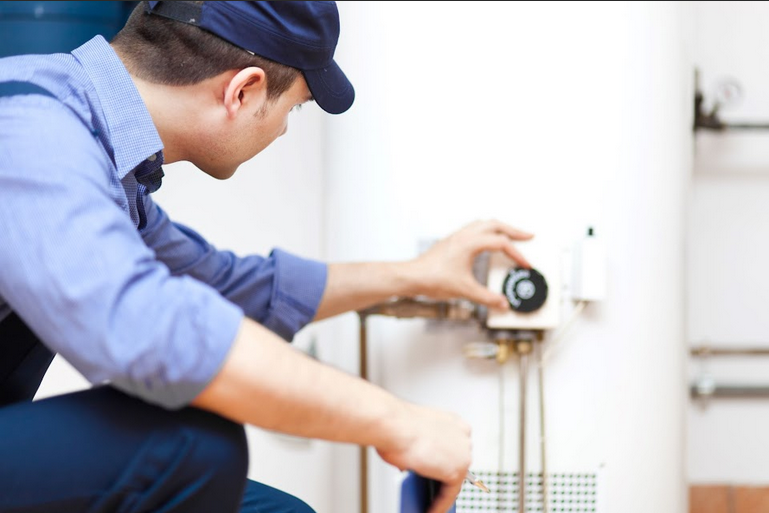

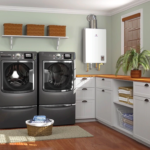
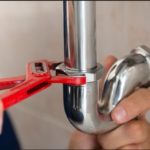
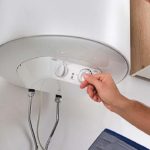

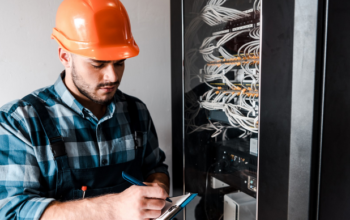





Great article on tackling water heater problems! The solutions provided are practical and easy to follow. Thanks to the author for sharing these useful tips to troubleshoot common water heater issues!